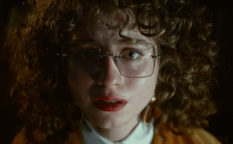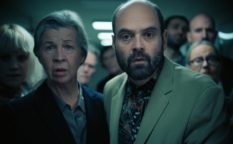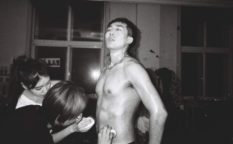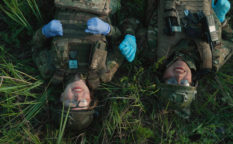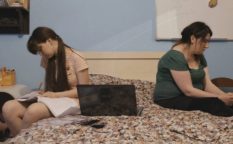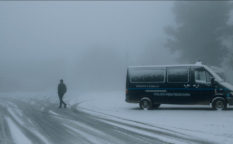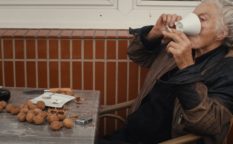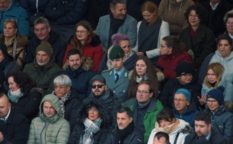Venice review: Possibility Of A Paradise (2024)
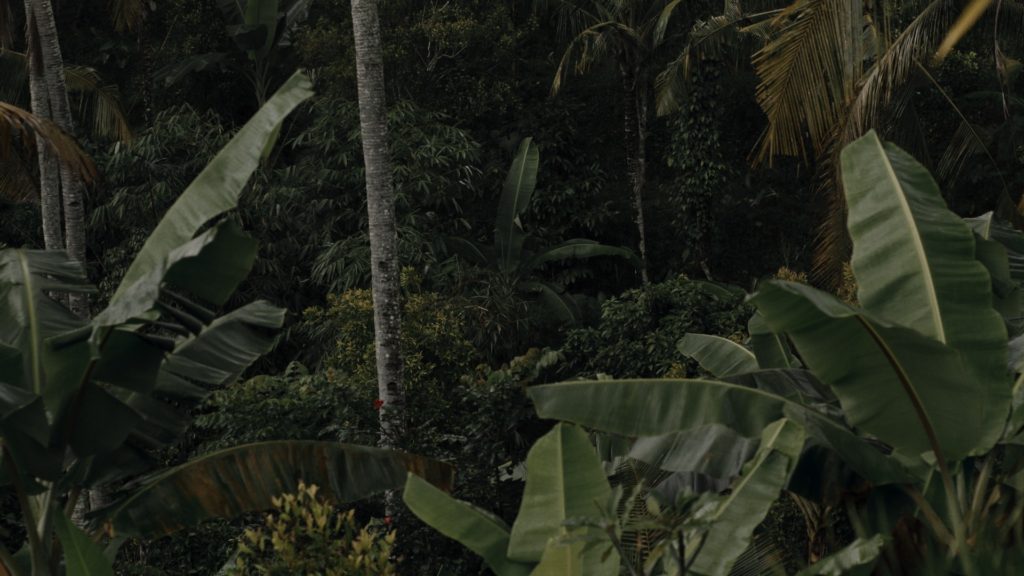
In the whole career of Mladen Kovačević, it is hard to find two films alike, substance- or style-wise. Each stands on its own, as a well-rounded piece where the stylistic approach fits the content and the topic. For 4 Years in 10 Minutes, he dived into the personal archive of the mountain climber Dragan Jaćimović, his DV tapes, and notes from his logbook/diary to try to picture his state of mind as he climbed Mount Everest. Merry Christmas, Yiwu was an observational documentary about the Chinese town where our holiday decorations, trinkets, and sometimes presents are made. His most recent one, Another Spring was also a journey, but of another kind, into the past at the smallpox epidemic in Yugoslavia that was handled with style and opened the dialogue with the society regarding handling the Covid-19 pandemic in the present.
His newest work, Possibility of Paradise, fresh from the premiere at Giornate degli Autori section of Venice Film festival, is also a journey of sorts. This time, Kovečević takes us to an unnamed “paradise island” (the film was shot in Bali) to explore the lives of the locals and the expats, the points where they intersect, and where they go separate ways. It is also Kovačević’s loosest film, most open to viewers’ interpretations and reading meaning into it.
It opens with a sequence set in the school on top of the village where, indicatively, uniformed female students clean the classroom and play learning games as they wait for the rain to stop. The focus then moves to a Serbian expat who wants to build a villa for her and her (adopted?) daughter, but who also gives back to the community by providing therapy and psychological support to those in need. An entrepreneur has to overcome the challenges of nature for his project. A team of people catches snakes to drain their poison and release them back to nature. An influencer confesses to a friend how she was swindled out of her fortune. A local woman dances and goes full monty, but her porcelain mask stays on. A Russian dancer teaches kids following her own performance in front of the temple followed by an emotional long-distance phone conversation with her mother. A father and a son are preparing to leave the place for good, but their destination is unknown. Finally, the diving instructor gets ready to lead the group to the sea bottom, while the conditions are not exactly perfect…
The narrative of the film is quite fragmented, while the editing tricks of Kovačević’s regular collaborator Jelena Maksimović, such as ending the segments with a freeze frame or with an extreme slow motion, further cement that notion. It goes the other way around, too: the pieces of the individual stories we see in the film are also pieces of the subjects’ personal stories.
Other technical aspects serve well, too. The cinematography of Marko Milovanović captures the natural beauty of the place in a matter-of-factly -, but still strikingly beautiful way, both in the static and the hand-held mode, whichever serves the purpose best for the individual scene. The soundscape filled by Jakov Munižaba’s sound design and the music by Rebekka Karijord (with one Munižaba’s number for the ending credits) that comes seldom, but always at the right place and with the perfect tune for the mood is also impressive.
But, in the end, what is The Possibility of Paradise actually about? Maybe all we need can be found right in the title: the never-ending search for happiness in seemingly “heavenly” surroundings where nature, on the contrary, can turn to be quite “hellish” in no time. But the terms of heaven and hell here are left to the free interpretation both for the subjects and the viewers. Surely enough, there is a hint of colonial behaviour from the expats’ side, while the other side is willing to “serve” them to achieve happiness through financial security by scoring easy money, but this is not about the class conflict, the influence of tourism to the nature of the cultural clash, and it is not about some kind of natural harmony in which the human society tries to mirror the natural ecosystem. Kovačević knows very well that the search for happiness is individual. And elusive.
Original title: Mogućnost raja
Year: 2024
Runtime: 75’
Countries: Serbia, Sweden
Languages: Indonesian, English, Serbian, Russian
Directed by: Mladen Kovačević
Written by: Mladen Kovačević
Cinematography by: Marko Milovanović
Editing by: Jelena Maksimović
Music by: Rebekka Karijord, Jakov Munižaba
Sound design by: Jakov Munižaba
Sound recording by: Jakov Munižaba
Colourist: Marko Milovanović
Produced by: Mladen Kovačević, Iva Plemić Divjak
Co-produced by: Elin Lilleman Eriksson
Production company: Horopter filmska produkcija
Co-production company: MDEMC Produktion
Supported by: Film Centre of Serbia, Republic of Serbia – Ministry of Culture, Swedish Film Institute
Sales by: Taskovski Films









